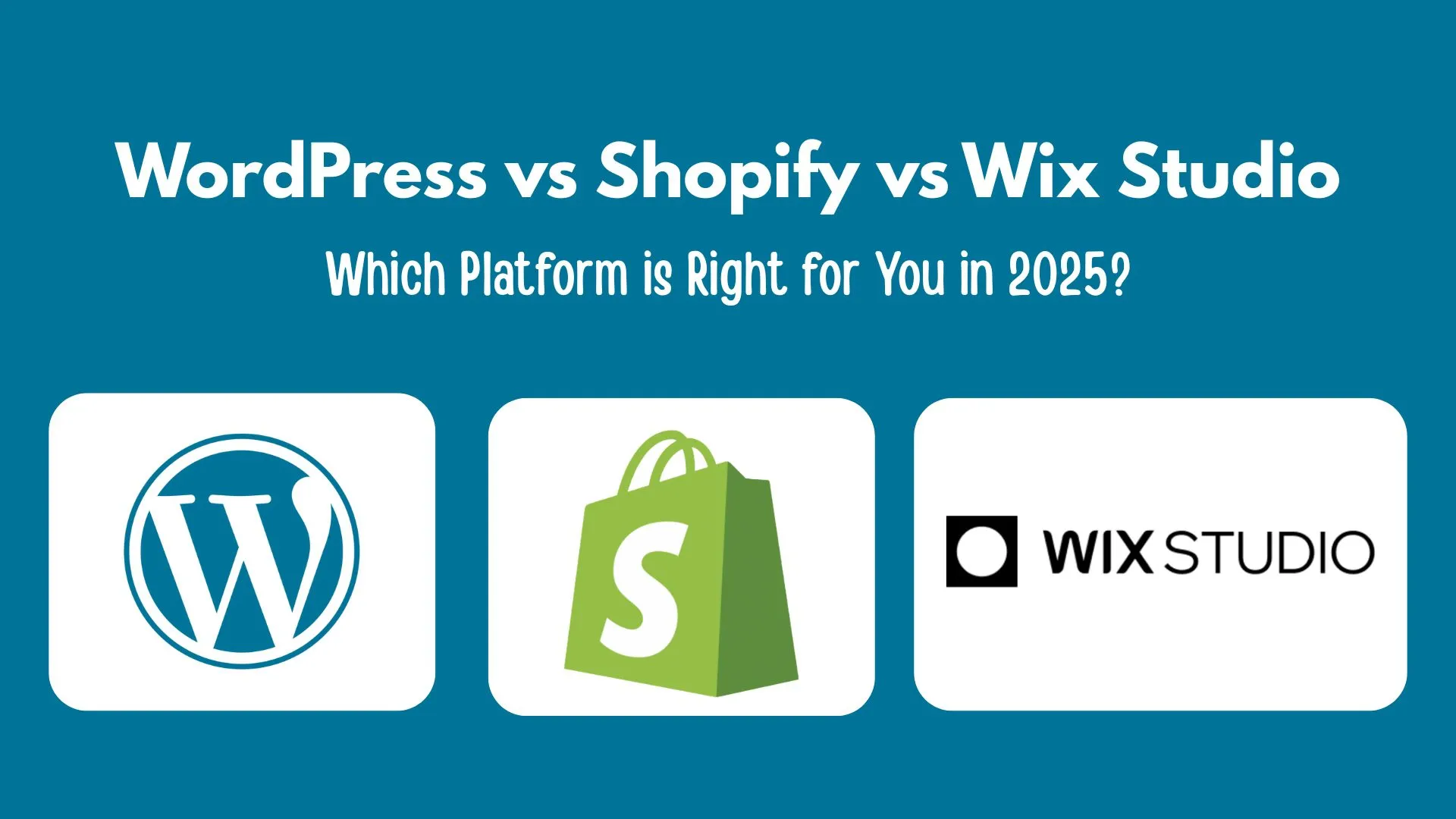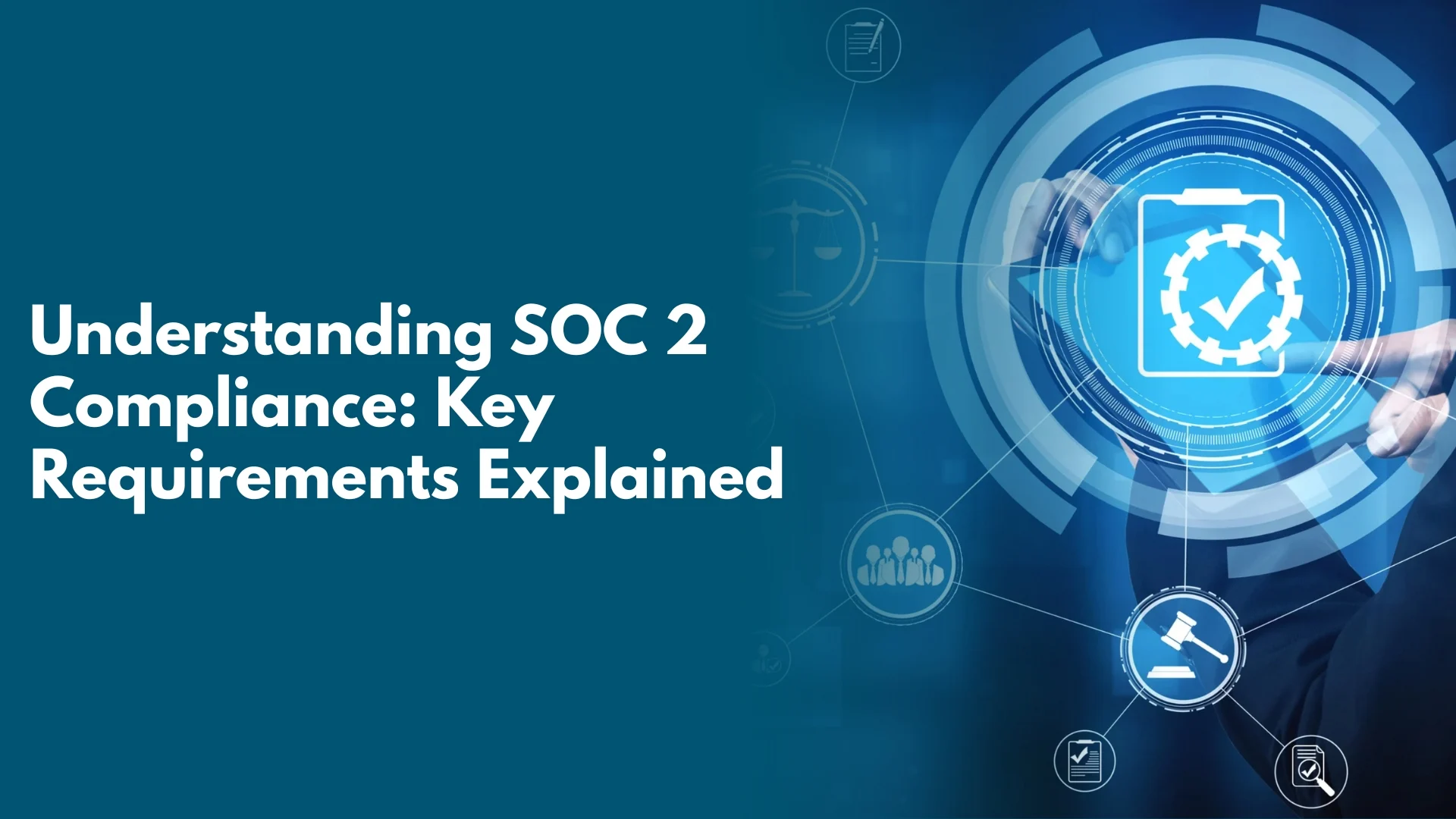In today’s digital-first world, choosing the right website builder can define your online success. Whether you’re launching a WordPress for blogging, running an eCommerce store, or creating a sleek portfolio, your platform dictates everything from site speed and design freedom to SEO rankings and website scalability.
Three giants dominate the modern website-building space: WordPress, Shopify, and the newly upgraded Wix Studio. Each has evolved significantly in recent years—WordPress with block-based editing and full-site editing WordPress, Shopify with headless commerce capabilities and eCommerce checkout optimization, and Wix Studio introducing professional-grade Wix Studio features for design and dev flexibility.
But how do these platforms compare in real-world performance? More importantly, which one fits your specific needs?
This in-depth guide will help you understand how WordPress, Shopify, and Wix Studio differ across critical metrics—design, ease of use, SEO, website scalability, and pricing—so you can make a fully informed decision without having to bounce between websites.
In 2025, what is WordPress and why is it still the most popular platform?
WordPress is an open-source customizable CMS that powers over 43% of all websites on the internet (source: W3Techs, 2025). Originally launched in 2003 for blogging, WordPress for blogging has evolved into a full-featured platform capable of running anything from personal blogs to enterprise websites and online stores.
One reason for WordPress’s continued dominance is its flexibility. With over 60,000 plugins and thousands of themes available, it’s often referred to as the “Swiss Army knife” of web development. From SEO optimization and eCommerce (via WooCommerce) to memberships, forums, and LMS integrations, WordPress can do it all—provided you or your developer can handle the setup.
In 2025, WordPress’s Gutenberg editor and full-site editing WordPress allow drag and drop website builders-style customization, bringing it closer to the ease of visual builders like Wix Studio, while still maintaining backend control.
But the real strength of WordPress lies in ownership and website scalability. You host it yourself (via hosting platforms like SiteGround, WP Engine, or Kinsta), meaning you own your data and can move, scale, or tweak your site as you please.
That said, WordPress also has a learning curve. Without a solid theme or plugins, beginners may struggle with design, security, and performance optimization.
Why Choose Shopify? Is It the Best Option for eCommerce?
If your primary goal is to sell products online, Shopify is often the go-to recommendation—and for good reason. It powers over 4 million stores globally and is optimized specifically for eCommerce.
Being a hosted SaaS platform, Shopify eliminates the requirement for hosting, security updates, and performance optimization. You sign up, choose a theme, upload your products, and you’re live—sometimes in under an hour.
Shopify shines when it comes to:
- eCommerce Checkout Optimization: Shopify’s checkout process is incredibly streamlined. The platform claims up to 36% higher conversion rates than average eCommerce checkouts, largely due to its smooth UX, responsive web design, and built-in trust signals.
- App Ecosystem: With over 8,000 apps, you can extend your store with features like subscription models, custom shipping logic, and loyalty programs.
- Payment Integration: Shopify Payments and Shop Pay make processing orders seamless, and the platform supports multiple currencies and tax setups out of the box.
However, the downside of Shopify is cost and flexibility. While the basic plan starts at around $39/month, many store owners end up paying significantly more once they add apps, themes, and advanced features.
And though Shopify supports content (like blogs), it’s not as robust for non-eCommerce needs as WordPress or Wix Studio.
In short, if you’re running a pure eCommerce business, Shopify remains hard to beat and continues to dominate the “Shopify vs WordPress for SEO” debate when the focus is purely on commerce.
What Makes Wix Studio Different from Classic Wix?
Wix Studio, launched as the pro-level evolution of Wix, addresses many of the limitations designers faced with the classic Wix platform. While Wix was always known for ease of use, it lacked developer-grade tools and responsive web design capabilities. Wix Studio fixes that.
In 2025, Wix Studio combines visual editing with responsive web design tools, full CSS control, reusable components, and even custom code embeds. It’s designed for agencies, freelancers, and designers who want both flexibility and speed without the complexity of WordPress or the eCommerce-first bias of Shopify.
You can create pixel-perfect designs, adapt them responsively across breakpoints, and deploy them in record time. Plus, it includes:
- Built-in SEO tools: Like structured data, 301 redirects, robots.txt editing, and faster loading speeds via their new Velo runtime.
- CMS Lite: Perfect for dynamic information such as team member listings, blog entries, and services—great for those seeking a customizable CMS.
- Dev mode (Velo by Wix): For those needing JavaScript-level control, Velo unlocks advanced logic, databases, and APIs.
Wix Studio sits in a unique place—between WordPress and Shopify. It’s easier than WordPress, more flexible than classic Wix, and not limited to eCommerce like Shopify.
For businesses that prioritize branding, responsive web design, and visual storytelling, Wix Studio is a serious contender among the best website builder 2025 choices.
Which Platform Offers Better SEO in 2025?
When it comes to Search Engine Optimization (SEO), all three platforms have evolved—but they’re not created equal. Here’s a comparison for those debating WordPress vs Shopify, or Wix vs WordPress SEO.
WordPress and SEO
WordPress is the gold standard for SEO—but only if configured properly. With plugins like Rank Math, Yoast SEO, or All in One SEO, WordPress gives you full control over:
- Meta titles and descriptions
- Canonical URLs
- Schema markup
- XML sitemaps
- Content structure and hierarchy
Because it’s self-hosted, you also have the freedom to tweak server settings, implement caching, and use CDNs like Cloudflare to enhance Core Web Vitals.
Zero-click answer: If you’re serious about SEO and want complete control over technical and content optimization, WordPress is the best CMS for SEO.
Shopify and SEO
Shopify has improved dramatically with features like:
- Editable meta fields
- Auto-generated sitemaps
- Built-in schema for product pages
- Server-side rendering for speed
However, Shopify limits some advanced SEO controls. For example, you can’t easily change URLs for system pages or remove the /products/ or /collections/ from URLs. Some SEO pros view this as a limitation in the Shopify vs WordPress for SEO conversation.
Still, for product-driven SEO, Shopify performs very well—especially when coupled with blogging and backlink strategies.
Wix Studio and SEO
Wix has made impressive strides in SEO, and Wix Studio takes it even further. It now supports:
- Custom schema markup
- Structured content blocks
- Server-side rendering
- Editable robots.txt and .htaccess-style rules
- SEO APIs via Velo
In a 2024 study by Backlinko and Ahrefs, Wix Studio outperformed both Shopify and classic Wix in speed, mobile UX, and structured data richness, showing it’s no longer an SEO underdog.
Bottom line: For most users, WordPress offers the deepest SEO control. Shopify is optimized for eCommerce SEO. Wix Studio balances both—especially strong for small businesses and agencies focused on content + conversion.
Which Platform Is Easier for Beginners?
Ease of use varies depending on what you’re trying to build.
WordPress Usability
WordPress is powerful, but not plug-and-play. New users often struggle with:
- Hosting setup
- Plugin conflicts
- Theme customization
- Performance optimization
However, drag and drop website builders like Elementor, Divi, and Kadence help flatten the learning curve.
Still, expect to spend time learning or hiring help.
Shopify Usability
Shopify is arguably the easiest platform for setting up an online store. The dashboard is clean, inventory management is intuitive, and the onboarding process is beginner-friendly.
You don’t need to think about servers, backups, or security—it’s all handled for you.
If you’re not selling, however, Shopify’s features may feel excessive or even limiting.
Wix Studio Usability
Wix Studio offers a modern, visual interface with intuitive layout controls and drag and drop website builders features. Its Wix Studio features like responsive editing, reusability, and team collaboration make it ideal for creatives.
The new components feature allows you to reuse layouts and maintain consistency—saving hours of design time.
Answer: For pure beginners who want a visually stunning site without writing code, Wix Studio is the easiest. For product sellers, Shopify is more intuitive. WordPress offers the greatest versatility, but it also has the steepest learning curve.
Can You Scale a Business on These Platforms?
All three platforms support website scalability, but in different ways.
- WordPress scales with the right hosting and plugin stack. Many enterprise blogs and content sites rely on its customizable CMS structure.
- Shopify is optimized for fast-growing online stores. With Shopify Plus, enterprise brands can handle thousands of daily orders, integrations with ERPs, and global scaling.
- Wix Studio scales visually and with dynamic CMS content, but larger sites may eventually face limitations in data modeling, backend extensibility, or headless integration.
Conclusion: Which Platform Should You Choose?
There is no “one size fits all.” The right platform depends on your goals, skills, and budget.
- Choose WordPress for flexibility, blogging, and SEO control.
- Choose Shopify for focused eCommerce checkout optimization and fast launch.
- Choose Wix Studio if you want beautiful design, responsive web design, and quick turnaround.
FAQs
Can I migrate from Wix Studio to WordPress or Shopify later?
Yes, but the process isn’t seamless. You’ll likely need to manually transfer content or use third-party tools. Wix Studio does not offer full content export like WordPress does.
Which is better for SEO: Wix Studio or WordPress?
WordPress offers deeper SEO control and is better for long-term SEO strategies. Wix Studio has made major improvements and now supports structured data, fast loading, and on-page SEO edits, making it suitable for most small businesses.
Is Shopify good for blogging?
Shopify includes a basic blogging engine, but it lacks advanced features like content scheduling, custom post types, or plugin-based extensions found in WordPress. It’s decent but not ideal for content-heavy sites.
Does Wix Studio support eCommerce like Shopify?
Yes, Wix Studio has integrated eCommerce tools, including product management, payments, and shipping. However, Shopify remains more powerful for large-scale online stores and advanced inventory setups.







